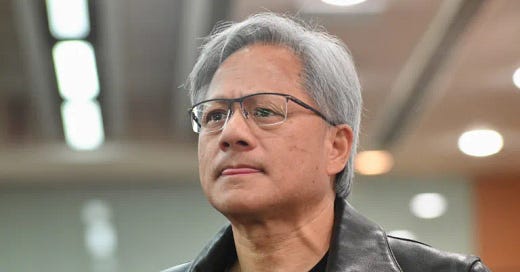Nvidia is set to introduce a cost-effective AI chip for China in response to US export restrictions.
Nvidia intends to introduce a more affordable AI chip for China that utilizes Blackwell architecture, in response to US export limitations. This new GPU is set to circumvent these restrictions and is
Nvidia is set to launch a more budget-friendly artificial intelligence chip aimed at the Chinese market, with mass production potentially starting as soon as June, as reported by Reuters citing insider sources.
This upcoming chip will be part of Nvidia's new Blackwell-series AI processors. According to the report, it is expected to be priced between $6,500 and $8,000 — a notable reduction compared to the currently limited H20 model, which retailed for approximately $10,000 to $12,000.
The lower cost is attributed to its simplified specifications and easier manufacturing processes. Built on Nvidia's RTX Pro 6000D, a server-grade GPU, it will utilize standard GDDR7 memory rather than the more sophisticated high-bandwidth memory. Furthermore, it will lack the advanced CoWoS (Chip-on-Wafer-on-Substrate) packaging from Taiwan Semiconductor Manufacturing Co, the report mentioned.
"Until we finalize a new product design and obtain approval from the US government, we are essentially barred from accessing China's $50 billion data center market," stated a spokesperson for Nvidia.
Currently, TSMC has not released any comments on this matter.
Challenges in the Chinese market
China is a vital market for Nvidia, contributing 13 percent to its revenue in the previous financial year. This is the third occasion where Nvidia has had to modify a GPU specifically for China as a result of US export restrictions intended to curb Chinese technological advancement.
Following the US's ban on the H20 chip in April, Nvidia was said to be contemplating the release of a lower-performance variant specifically for China, but that initiative was ultimately abandoned.
CEO Jensen Huang recently stated that the company's previous Hopper architecture, utilized in the H20, can no longer be modified in accordance with the current US regulations.
New models in development
The definitive name for the forthcoming chip has yet to be revealed. Chinese brokerage GF Securities has speculated that it might be designated as the 6000D or B40, although no pricing details or sources were mentioned.
Nvidia is also reportedly developing another Blackwell-based chip for China, which is anticipated to begin production as soon as September. The details regarding the specifications of this model are still unverified.
Losing market share to Huawei
Nvidia's presence in China's GPU market has significantly declined — plummeting from 95 percent prior to 2022 to approximately 50 percent currently — as a result of persistent export restrictions, Huang informed reporters in Taipei. He noted that Huawei, the manufacturer of the Ascend 910B chip, has emerged as a formidable rival.
Huang also warned that ongoing restrictions would drive more Chinese consumers towards Huawei's offerings. The H20 ban led Nvidia to write off $5.5 billion in inventory. On the Stratechery podcast, Huang disclosed that the company also had to give up $15 billion in potential sales.
The new export regulations imposed limits on GPU memory bandwidth, which is crucial for handling large AI workloads. Investment bank Jefferies estimates this cap to be approximately 1.7 to 1.8 terabytes per second — significantly lower than the H20’s 4 TBs. GF Securities predicts that the next GPU will reach this limit by utilizing GDDR7 memory.
Nvidia CEO praises Trump on tech policy
While visiting Sweden on Saturday, Jensen Huang commended US President Donald Trump for his backing of American technology companies. Nvidia has announced a collaboration with Swedish firms, including Ericsson and AstraZeneca, to develop AI infrastructure leveraging its latest data center platform.
This action comes in the wake of similar partnerships in Saudi Arabia and the UAE, following the Trump administration's reversal of a previous policy set by President Joe Biden that limited AI chip exports.
Huang remarked, “American technology firms were quite successful in China four years ago, but we have since lost around 50 percent of our market share, allowing competitors to expand.”
He added, “The President aims for American technology to prevail with Nvidia, enabling American companies to distribute chips globally, generate revenue, contribute to tax income, and invest in building infrastructure in the United States.”
The Trump administration has enacted extensive tariffs, asserting that they will foster economic growth, enhance US manufacturing, and elevate tax revenues. Nevertheless, some businesses and economists express concerns that these measures could lead to increased costs, disrupt supply chains, and undermine confidence, potentially sparking a recession.
Nonetheless, Huang voiced robust backing for initiatives focused on revitalizing American industry. "Manufacturing in the United States, ensuring the security of our supply chain, and fostering genuine resilience, redundancy, and diversity within our manufacturing supply chain — all of these aspects are outstanding," he remarked.




